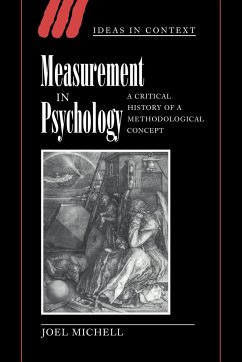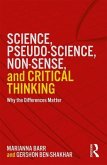This book traces how such a seemingly immutable idea as measurement proved so debatable when it collided with the subject matter of psychology. This book addresses philosophical and social influences (such as scientism, practicalism, and Pythagoreanism) reshaping the concept of measurement and identifies a fundamental problem at the core of this reshaping: the issue of whether psychological attributes really are quantitative. The author argues that the idea of measurement now endorsed within psychology actually subverts attempts to establish a genuinely quantitative science, and he urges a new direction. This volume relates views on measurement by thinkers such as Hö lder, Russell, Campbell, and Nagel to earlier views, like those of Euclid and Oresme. Within the history of psychology, it considers contributions by Fechner, Cattell, Thorndike, Stevens and Suppes, among others. It also contains a nontechnical exposition of conjoint measurement theory and recent foundational work by leading measurement theorist R. Duncan Luce. This thought-provoking book will be particularly valued by researchers in the fields of psychological history and philosophy of science.








